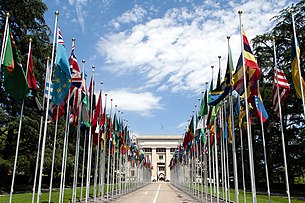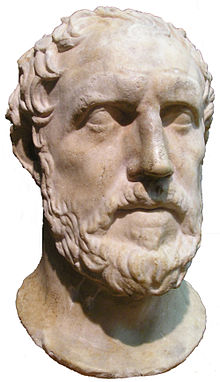
Back Internasionale verhoudinge Afrikaans Internationale Beziehungen ALS علاقات دولية Arabic Rellaciones internacionales AST Beynəlxalq münasibətlər Azerbaijani Міжнародныя адносіны Byelorussian Міжнародныя адносіны BE-X-OLD Международни отношения Bulgarian আন্তর্জাতিক সম্পর্ক Bengali/Bangla Međunarodni odnosi BS


| Part of the Politics series |
| Politics |
|---|
|
|
International relations (IR) are the interactions among sovereign states. The scientific study of those interactions is also referred to as international studies, international politics,[2] or international affairs.[3] In a broader sense, the study of IR, in addition to multilateral relations, concerns all activities among states—such as war, diplomacy, trade, and foreign policy—as well as relations with and among other international actors, such as intergovernmental organizations (IGOs), international nongovernmental organizations (INGOs), international legal bodies, and multinational corporations (MNCs).[4][5] There are several schools of thought within IR, of which the most prominent are realism, liberalism, constructivism, and rationalism.
International relations is widely classified as a major subdiscipline of political science, along with comparative politics, political theory, political methodology, and public administration.[6][7] It also often draws heavily from other fields, including anthropology, economics, geography, law, philosophy, sociology, and history.[8]
While international politics has been analyzed since antiquity, international relations did not become a discrete field until 1919, when it was first offered as an undergraduate major by Aberystwyth University in the United Kingdom.[6][9] After the Second World War, international relations burgeoned in both importance and scholarship—particularly in North America and Western Europe—partly in response to the geostrategic concerns of the Cold War. The collapse of the Soviet Union and subsequent rise of globalization in the late 20th century presaged new theories and evaluations of the rapidly changing international system.[10]
- ^ François Modoux, "La Suisse engagera 300 millions pour rénover le Palais des Nations", Le Temps, Friday 28 June 2013, page 9. (in French).
- ^ "International Politics". Political Science. Retrieved 2023-06-18.
- ^ "International Relations". Department of Political Science. Retrieved 2022-04-05.
- ^ "International Relations".
- ^ "What is International Relations? | BISA". 3 February 2020.
- ^ a b Reiter, Dan (2015). "Should We Leave Behind the Subfield of International Relations?". Annual Review of Political Science. 18 (1): 481–499. doi:10.1146/annurev-polisci-053013-041156. ISSN 1094-2939.
- ^ Caramani, Daniele, ed. (2020). Comparative politics (Fifth ed.). Oxford: Oxford University Press. ISBN 978-0-19-882060-4. OCLC 1144813972.
- ^ "international relations | politics". Britannica. Retrieved 2022-04-07.
- ^ "Where exactly does 'International Relations' begin?". Ritsumeikan University. July 2, 2018. Retrieved 2021-04-10.
- ^ Pfaltzgraff, Robert (22 July 2005). "International relations – Between the two world wars". Encyclopaedia Britannica. Archived from the original on Oct 5, 2021. Retrieved 2021-04-10.
© MMXXIII Rich X Search. We shall prevail. All rights reserved. Rich X Search